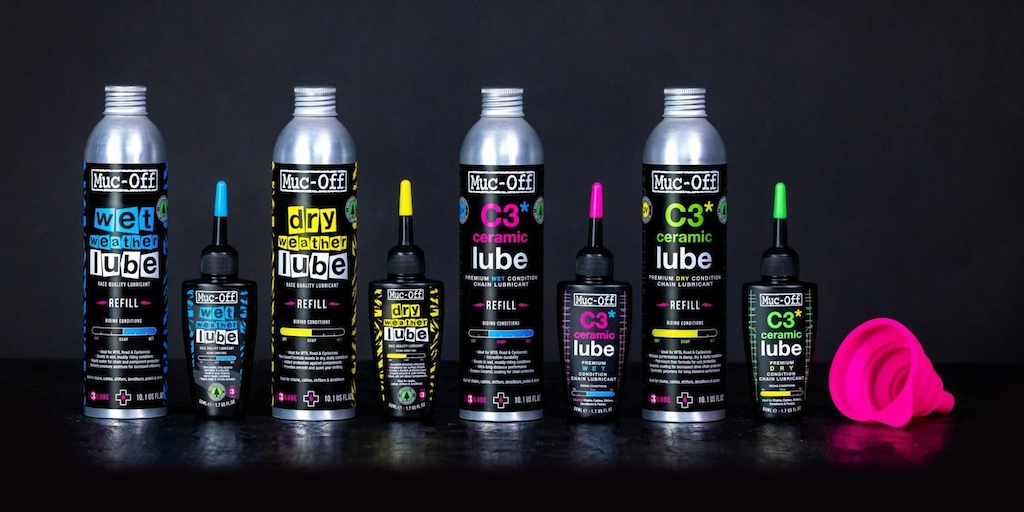6 Environmental Initiatives in the Bike Industry: Seaweed Gel Pods, Schwalbe Bike Soap & More
The cycling industry gets away with some pretty wasteful practices, which it often waves away under the pretense of "it's bikes, so it's green." The reality is that buying less, repairing and reusing your things, and riding more locally are the best things for the earth; however, we applaud the brands that are trying to reduce their impacts on the environment too. The perfect is the enemy of the good, so it's great to see people working towards better. Let's take a look at the recent announcements that move the industry forward in reducing its impact on the environment.
Decathlon Innovation Awards 2022
Decathlon's Reveal awards are the brand's internal innovation award aimed at highlighting potential new products. This year's award showed off some interesting products for cycling that could leave a positive impact.
Rockrider MTB Helm EXPL 100
The Rockrider XPL 100 helmet is designed to be fully recyclable with each material having the potential to be separated after use to make it possible to reuse. Normally, if materials are permanently stuck together it can make recycling difficult. Decathlon says this process of making a fully recyclable helmet can be applied to other helmets.
Decathlon Gel Pod
Disposed gel packets can be a common sight when out on the trails, but the new gel pod from Decathlon looks to change this by making it from seaweed. The aim of this gel pod is to have a fully edible shell so there is no need for a foil packet and you can just pop it all in your mouth with no waste.
Schwalbe Bike Soap
Schwalbe has launched its own bike cleaning solution with its solid block of soap. Schwalbe claim the advantage of this is a simpler and more environmentally friendly production as well as a longer shelf life. To create the soap Schwalbe has used 100% biodegradable ingredients and no perfumes or microplastics while lasting for around 100 washes.
Continental Using Naturally Sourced Rubber
Continental is now using sourced natural rubber from Indonesia in its gravity mountain bike tires.
Since July this year, all of the new tires in the brand's gravity range will feature rubber sourced from a project in West Kalimantan, Indonesia. Claus Petschick, head of sustainability at Continental Tyres, said: “I’m delighted that we are now using responsibly sourced natural rubber from our project in Indonesia in series production for our ‘Gravity’ mountain bike tires.
“Our ambition is to actively take responsibility in our supply chains. For us, digitalisation and education are key to enhancing the transparency of our natural rubber supply chains.”
Continental sustainably sourced rubber is cultivated and processed through a transparent supply chain with measures in place to ensure the upholding of human rights, minimising the environmental impact and improving the living conditions of local smallholders. The companiy's goal is to have a 100% sustainable supply chain by 2050 with natural rubber from responsible sources in every product range by 2030
Muc-Off Launches Refills
Muc-Off has announced new refill options for its ranges of lubricants.
The brand's Wet Weather Lube, Dry Weather Lube, C3 Ceramic Wet Lube and C3 Ceramic Dry Lube will now be available in more environmentally friendly packaging as well as offering a cost saving. The wet and dry weather lubes offer a 45% reduction in cost whereas the C3 Ceramic lubes so a price drop of 63%. Each of the new lube refills will fill Muc-Off's standard 50ml bottle six times, reducing packaging by 43% compared to having individual bottles.
Alex Trimnell, CEO at Muc-Off, said: “The idea behind refill lubes is simple – reusing is better than recycling. We’re on mission here to drive down the amount of plastic being used, which is exactly what these products do. We’re excited for riders to enjoy the performance benefits these lubes can bring to their bikes, and the formulations mean their drivetrain components will have an extended life, saving them money and having a positive impact on the environment. Innovation is in our DNA and we’re relentless in our pursuit of sustainable solutions – this launch is another turn of the cranks in the right direction.”
Polartec Commits to Net-Zero
Polartec's parent organization Milliken & Company has announced it will be working towards science-based net-zero targets.
UN-backed Science Based Targets initiative (SBTi) has verified the companies' short and long-term targets to ensure they are consistent with climate science and the Paris Agreement as net-zero is aimed for 2050. Milliken & Company is one of only 50 companies globally to have achieved approval from SBTi.
Turning Tires into Bike Paths
Velorim, a tire and tube recycling company, has announced it will be turning reclaimed rubber into a material that can be used for cycle paths.
Richard Lawrence, the company’s Director said: "Velo-Path is a single-layered system with a bark-like appearance. It is constructed of recycled shredded bicycle tires bonded together with polyurethane resin. As the pieces are much larger than standard rubber crumb, the spaces between gives it greater flexibility and open pores, allowing superb water ingress. As it is made from rubber that means the surface does not become slippery even in wet conditions, maintaining the rider experience."
The company offers a UK-wide recycling service to workshops and businesses in the cycling trade and is supported by distributor Madison. Shops can either fill a tire cage with 180 tires, a bag with 25 tires of a box with 160 inner tubes.
Author Info:
Must Read This Week
Sign Up for the Pinkbike Newsletter - All the Biggest, Most Interesting Stories in your Inbox
PB Newsletter Signup





Stop making eBikes. Ever look up what a mining site for batteries looks like? Or the amount of diesel it takes to transport it to produce a single battery?
Lets go keyboard warriors lets hear it
Surprisingly, lithium production is one of the major industrial processes that holds a real possibility of reaching net-zero due to novel extraction techniques.
If you want to read up on any of these challenges (and many proposed solutions) check out www.iea.org/fuels-and-technologies -- its work is comprehensive and no-nonsense.
Also, think deeply about the transport chains in general. Not just for batteries, but for everything you live with. Marine transport is integral to getting goods from country to country -- especially out of China, Taiwan, and Japan (bicycle manufacturing hubs). And marine transport, as with any mode of industrial transport, is notoriously difficult to decarbonize due to the inherent energy density of liquid fuels like diesel and gasoline.
keep your cell phone and computer for 10 years and I'll keep my mountain bike for 10 years, DEAL?
All metals and mineral production is destructive to the environment, both in terms of CO2 emissions and destruction of habitats. I was saying that, lithium production "is one of the major industrial processes that holds a real possibility of reaching net-zero due to novel extraction techniques." Holds a real possibility. It's not doing that today.
Those new techniques use ion-exchange beads, similar to those you find in a water softener, to eliminate hard rock mining and evaporation ponds common in the Atacama desert. So basically you pump lithium brine from the ground, run it through an exchanger, extract the lithium, and put clean groundwater back into the earth. This also eliminates habitat destruction (theoretically).
It's far easier to adopt these methods for lithium (at industrial scale) than it is to change the way we produce steel or aluminum.
If you want to read instead of argue, check out Lilac Solutions [https://lilacsolutions.com/] and listen to some things that its CEO Dave Snydacker has to say. Producing lithium and preserving the environment do not have to be mutually exclusive.
Must be nice to have thousands of dollars of disposable income and buy things just to upgrade, even though the old stuff still works fine. Some of us don't have that luxury. I have a 2010 iMac, an iPhone 6S, and up until 2019, I was riding the bike I bought in 2009. Not all of us are so lucky to just buy new stuff cuz we're sick of the stuff we have, even though it still works.
joking...but also not joking
It's amazing how far you can ride with a reusable zip lock bag of nuts and dried fruit.
For the 'why not just eat food' folks, I do. I eat a good dinner and then do the oatmeal, syrup, berries and fruit, and sometimes an egg thing for breakfast. But, my metabolism is fast, even at 40, and that is good for maybe an hour of woods riding effort and I will then need a top off. On the TT rig, that breakfast is good for half that amount of time. Maybe less depending upon the distance of the race.
[Seriously though, recyclable helmets are a step in the right direction, but it would also be nice if there was a way to extend the viability of the materials used in helmets so they don't exceed their lifespan every 3-4 years]
Local homes. It’s far from perfect but it is feasible to do way more with the technology.
Punk powder = EUR 8/litre. Plastic bottle concentrate = EUR 6/litre.
This tells me it's a lot cheaper to send a plastic bottle of water across the globe and to my door compared to small packets of powder that could be dumped in my mailbox. I think Muc Off need to start there. I have enough "containers", thank you.
bottle lube aswell or is there a changable top cap or something for the refill bottle ?
If your someone who has not used muc off lube then you have to buy both the Aluminium
refil and small bottle lube, or perhaps pour onto a rag and wipe over chain etc
As far as flasks, I just bought a cheap one (at Decathlon of all places) to try and put one ride's worth of gels in one, cleaner place. I did not think cleaning would be an issue but we'll see on the trainer test if I've made a grave error underestimating the domestic chore...